A Beekeepers Annual Journal:
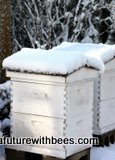
![]()
![]()
As most of you know, I started keeping bees when I lived in Indiana. In 2008 I moved some of my bees with me to Missouri. Beekeeping here is different than Indiana even though we are not that far apart geographically. My beekeeping journals show just how different the Februaries are here in Southwest Missouri than they are in Indiana. These articles are here to share the lessons I’ve learned while keeping bees here in Missouri.
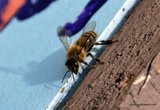
![]()
March is one of the hardest months for bees. More beehives starve in March than they do in January and February. Why? Because they are not doing much in Jan. and Feb. so they are not eating much. Just trying to stay warm. How-ever, in late February or early March, they start rearing brood to prepare for the spring harvest of nectar and pollen.
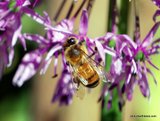
April is one of the busiest months for the bees and thus, the beekeeper. The bees kick into overdrive and the populations explode. Some hives are already drawing new wax and increasing brood production. Some aren’t. They don’t all act the same way or work on the same time table.They are bringing in pollen and will soon start to ignore the pollen patty. Shrubs and flowers are blooming and the bees are bringing in tons of nectar.
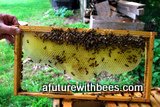
![]()
April and May are the two most important months in the yearly cycle of a beehive. Most of what they need to survive for the rest of the year is done in April, May and June. This is when they harvest most of the honey, draw most of the comb, and reproduce. The population reaches is peak during these months to accomplish these goals.
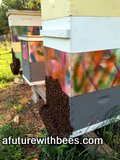
July is normally a hot, dry month here in the Ozarks. The population in most hives has reached its peak and will slowly start to decline by the end of July because the main nectar flow is over. July and August see very little nectar coming into the hives. From what I’ve experienced, there is just enough nectar for them to maintain their reserves but not enough to gain significantly. (Although keeping a hive on a scale shows some very interesting ups and downs).
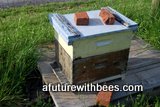
August in this area is a hot dry month with little activity for the bees. The nectar flow has pretty much stopped and the hives are not gaining any significant weight. The bees have stopped drawing foundation because the nectar flow has stopped.The queen starts slowing down her egg laying rate and the population starts to decline. Mostly, they are in maintenance mode for the next few months. They keep the hive cool by fanning, finish capping the honey, and work to corral the SHB (small hive beetles).
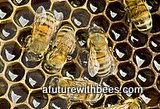
September is an odd month for beekeepers. The weather is still warm, and it feels like we should be doing something - but there is not much for us to do. It is too late to raise queens or make splits. We are not adding supers because the nectar flow is over. If we have harvested honey, we are starting to condense the hives for the winter. But, we cannot condense them too much too early. As usual, it can be difficult to strike just the right balance.

October – will it be warm and sunny or cold and rainy? Will the bees find enough nectar and pollen to replace what they are eating or will the hives lose weight this month? We beekeepers keep watch to help if needed. Bees will gather whatever nectar they can find. They will also be packing the lower boxes with pollen to prepare for brood rearing next spring. Hives kept on a scale will reveal some very interesting ups and downs during this month.
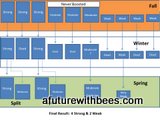
![]()
There is an adage in beekeeping that goes "Take your winter losses in the fall".
It took me years to gain a strong understanding of this concept.
For years I tried to nurse weak colonies though the winter hoping for good results and more hives in the spring. All the while I was hurting my operation and causing bees to suffer unnecessarily. I would like to tell a tale of two apiaries/beekeepers.
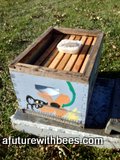
![]()
December is usually a cold month and there isn't much we can do for the colonies. I've already made the necessary colony combinations so I don't have any weak hives going into the winter.If it turns too windy I may reduce the entrances even though they don't need it.
But when the wind is blowing hard I feel sorry for them. I remember well though, the time I made the mistake of closing the hive down too much and making the it too warm - lost some hives that way. There's something about the struggle which makes them stronger. Coddle them too much and we do just as much harm as when we don't help them at all. It's always a balancing act.